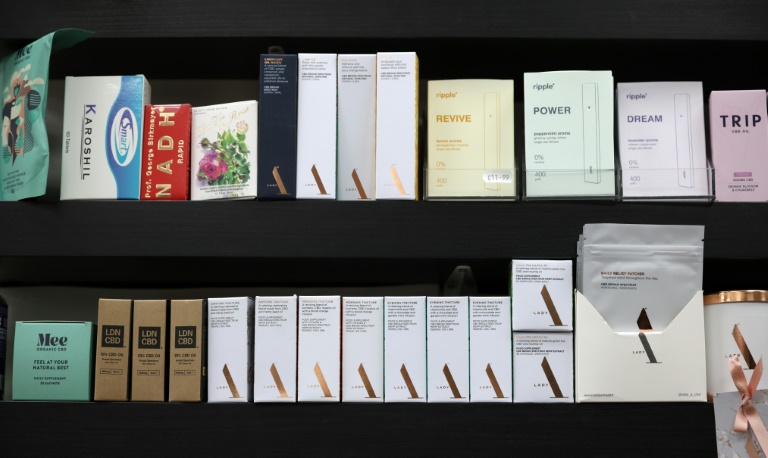
LONDON: Britain's legal cannabis market has boomed during the coronavirus pandemic to become the second biggest after the United States, as consumers rushed to alleviate Covid-linked symptoms, industry experts say.
Cannabidiol or CBD, which is most commonly sold as oil at high street retailers, is one of the active ingredients of non-psychoactive cannabis.
CBD is touted as have relaxing and anti-inflammatory properties, but experts argue the market has long suffered from questions about its efficacy and a lack of regulation.
Britain's Food Standards Agency now regulates the sector and its marketing, after the European Union classified CBD as food in 2019.
Such products will generate sales of pound sterling690 million ($856 million, 811 million euros) in 2021, according to the Association for the Cannabinoid Industry (ACI).
That was almost a third higher than the UK trade group's pre-pandemic 2019 projection.
'Pandemic increased demand'
"The pandemic increased CBD demand because there obviously were stress, sleep problems, anxiety, these kind of risks," ACI co-founder Steve Moore told AFP.
Britain has experienced a "quiet cannabis revolution" that has transformed it into "the world's second largest consumer cannabinoids market", ACI said.
Such products are stripped of psychoactive tetrahydrocannabinol or THC molecules, which are found in recreational cannabis that remains illegal in Britain.
The state-run National Health Service warns there is "no guarantee" that products claiming to be medical cannabis and sold in health stores as food supplements, such as CBD oil, are of "good quality or provide any health benefits".
The UK allows the sale of hemp products that can be made only from the cannabis plant's fibres or seeds, but not the buds.
Aside from Covid, such products have also experienced strong demand from Britons seeking to ease pain from chronic illnesses such as severe arthritis.
'No definitive evidence'
British charity Versus Arthritis recommends patients contemplating CBD should consult their doctor beforehand, and also wants more work done to understand its impact.
Faced with booming sales, professor Sagnik Bhattacharyya, who researches psychotic and substance abuse disorders at King's College London, says clinical trials are needed.
"CBD products available over the counter from many shops or online may not contain what it says on the tin," Bhattacharyya told AFP, adding they can include potentially harmful substances.
"Most importantly, there is no definitive evidence as yet that CBD would work for any of the myriad health conditions which it is supposed to benefit, except for certain types of epilepsy."
Despite those concerns, Joe Oliver, head of British-based cannabidiol firm LDN CBD, says his products help those with chronic illness.
LDN CBD launched in 2018 to tap into the new market, and is seeking a new round of financing to fund expansion.
"From testimonials and feedback we have found that this benefits those who are dealing with the effects of traumatic experiences, chronic illness and in high-stress environments," he told AFP.
"I've seen thousands of people's lives changed. So that's a lot better than nothing."
'Open up valuable market'
Britain's CBD industry is currently forced to import oil from Europe and the United States.
Under UK drugs law, it is not possible for British companies to produce CBD because they are compelled to destroy the CBD-rich flower or bud of the hemp plant.
That has sparked an outcry from the farming community, which argues that profits could be boosted massively if they were allowed to use all of the plant.
"It is hard to comprehend, especially in a post-Brexit era, why it is legal to import CBD into the UK, yet British businesses are not permitted to produce CBD commercially," said Louise Motala, who runs Bridge Farm in eastern England.
"We have real expertise in cultivation and extraction in this country," she added in a report published by drug reform group Volteface.
"A change in policy to open up this valuable market and allow production will enable UK businesses to make the most of this global opportunity."